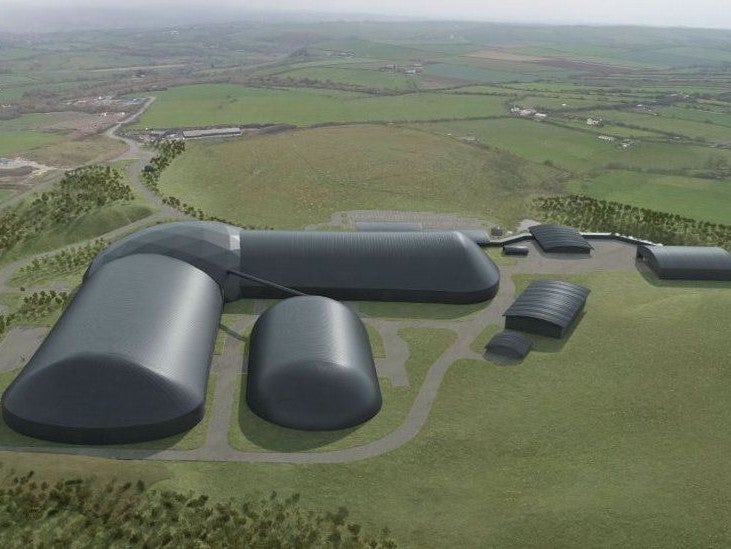Cumbria coal mine: Government’s own climate advisers slam ministers for allowing UK’s first pit in 30 years
New development ‘will increase global emissions and have an appreciable impact on the country’s carbon budgets’

Top advisers with the government’s Climate Change Committee have slammed ministers in a fast-escalating controversy over a new £165m coal mine set to be dug in Cumbria.
The group said the proposed Woodhouse Colliery near Whitehaven would spew more emissions than any other such facility currently running in the UK.
In a dramatic intervention, it also said the site would compromise the country’s aim of becoming carbon neutral by 2050 and undermine leadership of the vital COP26 climate summit in Glasgow in November.
The development looks set to become the UK’s first new coal mine in 30 years after ministers effectively waved through permission for it to go ahead earlier this month by declining to review the plans.
But in a letter published on Saturday, Lord Deben, chair of the CCC, said the decision not to call in the proposals for further scrutiny gave a “negative impression of the UK’s climate priorities”.
He wrote: “The opening of a new deep coking coal mine in Cumbria will increase global emissions and have an appreciable impact on the UK’s legally binding carbon budgets.
“The mine is projected to increase UK emissions by 0.4Mt (megatonnes) of CO2e (carbon dioxide equivalent) per year.
“This is greater than the level of annual emissions we have projected from all open UK coal mines to 2050.”
The vast scheme – which would extract 2.78 million tonnes of coal a year up to 2049 – was approved by the Cumbria County Council in October. The government declined to call in the decision saying it was a local matter for local people.
But opponents to the plans – including Friends of the Earth, Greenpeace and a number of Cumbrian campaign groups – have questioned how something that will increase global pollution can possibly be considered a local issue.
John Sauven, from Greenpeace, said it was “extraordinary that anyone still believes burning coal is only a local issue and has no global impacts”.
Yet the government shows no signs of backing down – not least because support for the mine remains huge in Cumbria itself.
The promise of 500 direct jobs and 2,000 more in the supply chain in an area desperately in need of employment have won Conservative, Labour and Lib Dem support on both Copeland Borough and Cumbria County councils.
Advocates point out that only coking coal – entirely essential in the production of steel – will be mined; not thermal coal for fuelling power stations.
They argue that, if the UK wants to keep producing steel – needed in pretty much any infrastructure project imaginable – it still need such coal.
“Let’s get it out the ground here instead of importing it halfway around the world from China or Russia,” Mike Starkie, the directly elected Conservatove mayor of Copeland told The Independent. “Let’s have those jobs in the UK.”
Low carbon methods of producing steel are being developed but are not expected to be able to develop quantities until well into the middle of the next decade.
Join our commenting forum
Join thought-provoking conversations, follow other Independent readers and see their replies
Comments
Bookmark popover
Removed from bookmarks